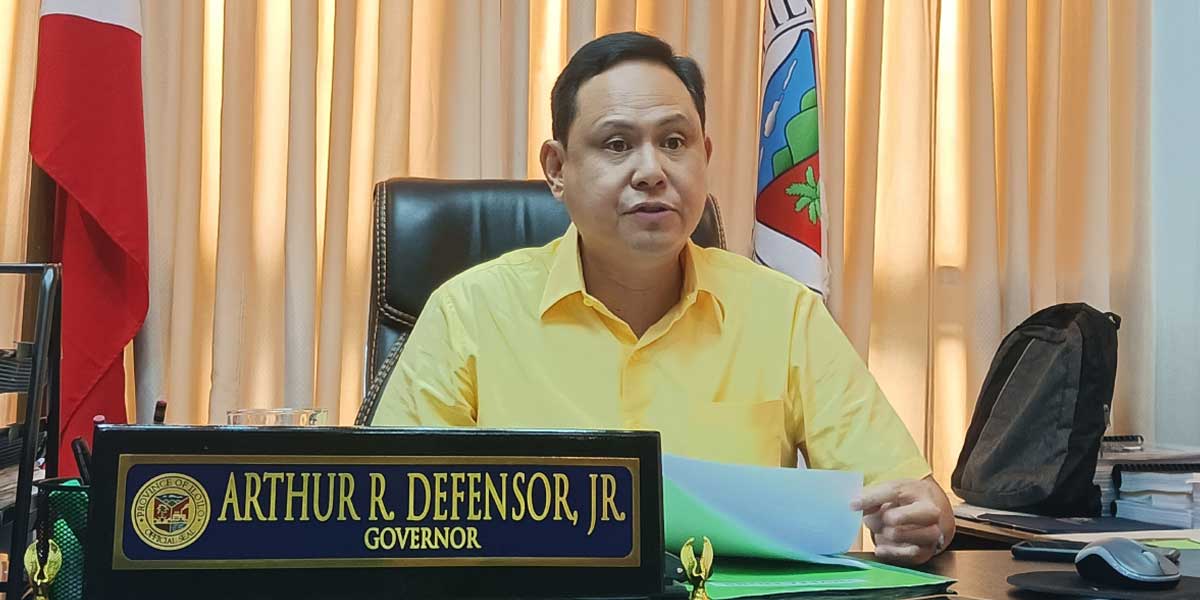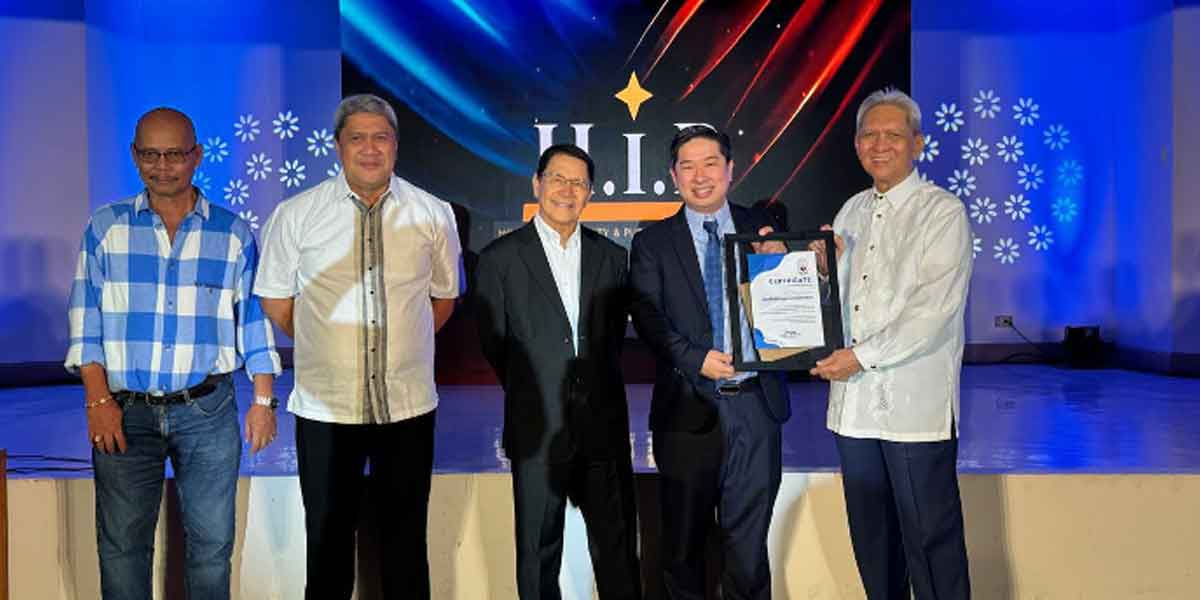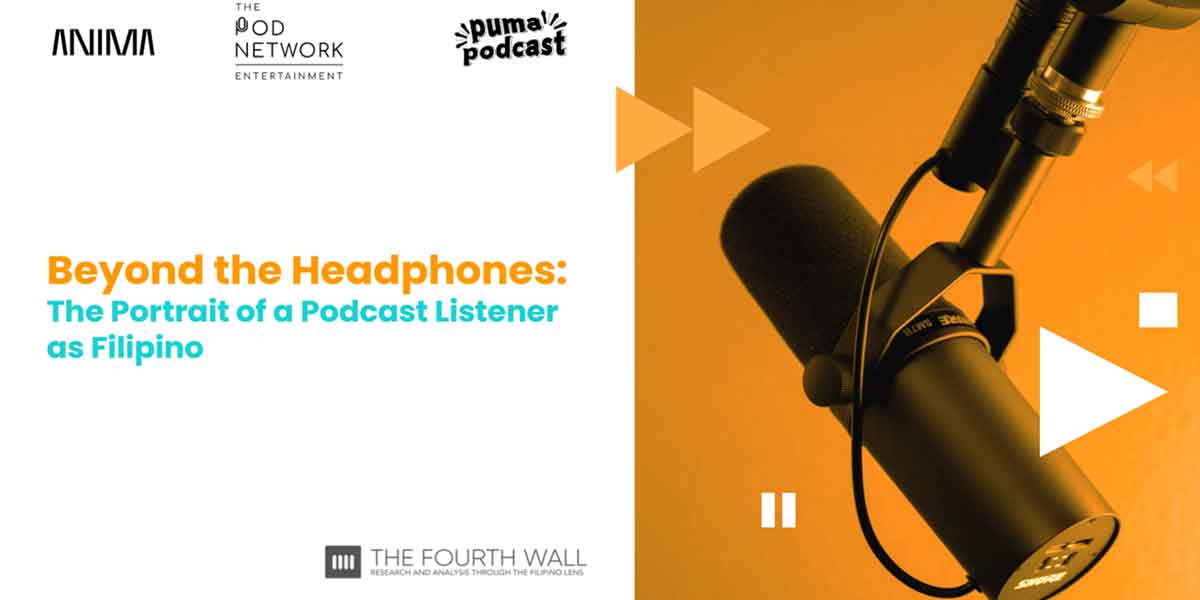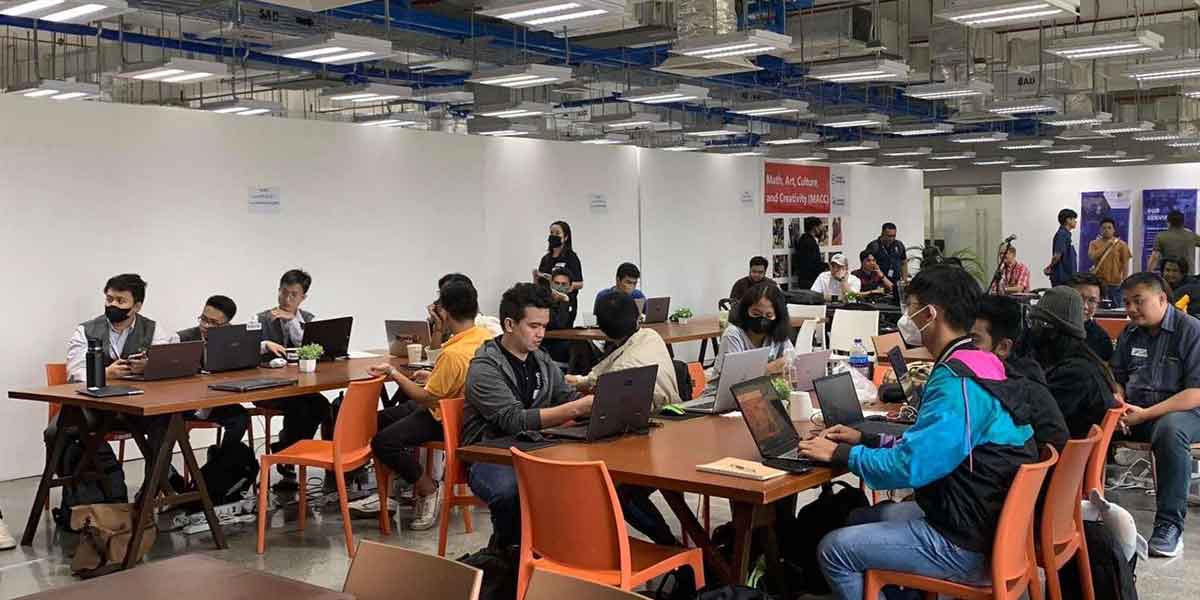
By Joseph B.A. Marzan
Progressive groups celebrated International Human Rights Day (IHRD) on Thursday, Dec. 10 with a protest held inside the University of the Philippines Visayas (UPV) Iloilo City campus.
The Universal Declaration of Human Rights (UDHR) was signed by 48 countries, including the Philippines, during the 183rd meeting of the United Nations General Assembly in Paris, France on Dec. 10, 1948.
The protest was led by the Panay People’s Coalition, a broad collective of various organizations which have led other protests in the previous months.
Participating organizations include the Jaro Archdiocese Social Action Center, BAYAN Panay, PAMANGGAS, Kilusang Mayo Uno, Pinagkaisang Samahan ng Tsuper at Operators Nationwide (PISTON), Movement Against Tyranny, Ilonggo Movement Against Terror Act, Partido ng Manggagawa, SENTRO, Liberal Party, KADAMAY, All UP Academic Employees Union, Promotion of Church People’s Response, GABRIELA, Anakbayan, League of Filipino Students, Kabataan Partylist, Youth ACT Now Against Tyranny, Alliance of Concerned Teachers (ACT) Partylist, and MAKABAYAN.
The protest was slated to be held at the Sunburst Park in City Proper district, but the Iloilo City government denied the organizers’ request for a permit.
During the protests, groups continued their calls for President Rodrigo Duterte and his officials to uphold human rights amid the coronavirus disease 2019 (COVID-19) pandemic.
The calls included the junking of Republic Act No. 11479 (Anti-Terrorism Act of 2020), the stopping of Lumad killings, mass testing for COVID-19, a safe return to physical classes in schools, and upgrading of basic social services.
BAYAN Panay deputy spokesperson Bryan Bosque explained to Daily Guardian that the protests are their way to recognize that there is still a long way to go for human rights in the Philippines and around the world.
“The commemoration of the International Human Rights Day, even though it is not enforced by many governments, at least it has influenced policy-making to draft laws which respect human rights. We are seeing that even though there are people who observe human rights and fight for them, and there is an International Human Rights Day, there are still attempts to repress human rights,” said Bosque.
Bosque also added that human rights, as a “weapon of the people” is more important to fight for at this time, especially under the Duterte administration.
He called Duterte “worse than Marcos” in describing the current officeholder’s record on human rights.
The late dictator Ferdinand Marcos’ administration from 1965 to 1986 was one of the main thrusts of the then-Corazon Aquino administration in 1986 to include the creation of the Commission on Human Rights in the 1987 Constitution of the Philippines, under Section 18 of Article XIII.
3,257 extrajudicial killings, 35,000 recorded tortures, 77 disappearances, and 70,000 incarcerations happened during the Marcos administration.
Under the Duterte administration, the Philippine National Police reported only 5,100 deaths in the crusade against illegal drugs as of January 2019.
Human rights groups, however, have estimated the death toll under the so-called “drug war” to be as high as 12,000.
Rep. Act No. 11479 is also seen by protesters as a way for government forces to stifle dissent through protests, which is protected by Section 4, Article III of the 1987 Constitution.
“Human rights are a weapon of the people against the abuses of the government. This is the only thing we can hold on to against the people in the walls of the government who seek to step on the people. There are many and great reasons for the people to gather today—to fight for their rights, especially in this Duterte administration, which was worse than Marcos. In just a short span, human rights violations have gone through the roof,” Bosque added.
Despite the attacks from supporters of the Duterte administration, which include warrantless arrests and “red-tagging”, he said that the simple need to fight for human rights pushes them to keep going.
“There is a systematic attack from those who are in power right now to disregard human rights. The only thing we are thinking is, if we will not fight right now, if we will relax where we are, who will stand on the side of human rights? We take inspiration from our heroes, like Bonfiacio and activists during the Marcos regime, we have the thought that if they surrendered, maybe now our times would have been darker,” he said.
INTERSECTIONALITY
Prof. Tomasito Talledo, a professor of Political Science and Sociology at UPV, explained to Daily Guardian the concept of “intersectionality”.
The term “intersectionality” is pointed as the reason for the presence of other groups during protest actions.
Duterte supporters online have often accused progressive groups of “dragging along” other sectors in protest actions and condemnation statements, which they said had “no connection to human rights”.
Talledo defined intersectionality as lenses wherein people look at various issues from different perspectives in different dimensions.
He cited indigenous peoples (IP) or “Lumads” who may also be part of the LGBT community, where their perspective as an IP is “intersected” with their perspective as a member of a gender minority.
He also mentioned the issues of racial inequality in the United States as a good example of intersectionality, where women of color historically face worse circumstances compared to white skinned-women.
“Intersectionality is a lens or a perspective. When you look at one issue, you have to look at it from their lenses. If you look at an issue from the lens of a social class, you may miss something. Apart from social class, there are other dimensions such as gender and ethnicity, among others. For example, take the Lumads. There are Lumads who are also LGBT. So how do you deal with a phenomenon like that if you do not use an intersectional perspective? Why are they here? Why do they take on these issues? That is where we use intersectionality,” Talledo explained.
As to the importance of intersectionality in human rights, Talledo explained further that it is a modern development of the concept of human rights.
He mentioned that UDHR definition did not factor in intersectionality when it was crafted, but that activists at present see human rights to cut across dimensions.
“The generic term of the human rights [under the UDHR] did not have an understanding of intersectionality, but those who are current advocates of human rights, say that they cut across gender, race, social classes, etc. Human rights is now seen as not just the right available to adult males with incomes. This now includes even IPs,” he said.





















